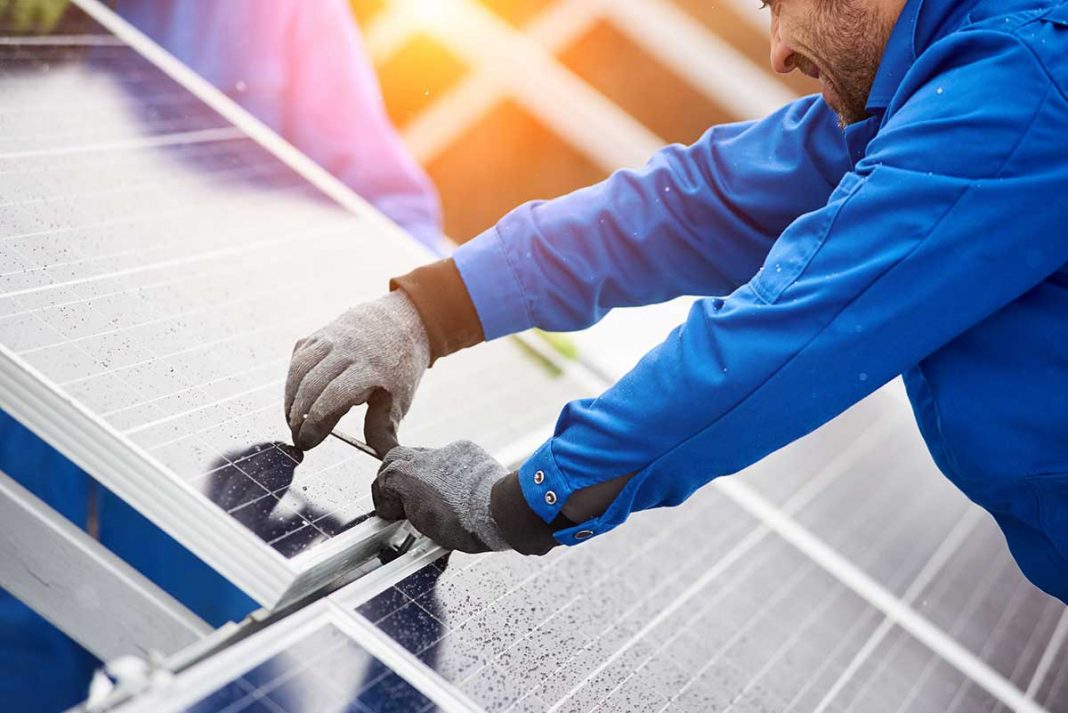MANITOULIN – The global COVID-19 pandemic, while tragic, offers an unprecedented opportunity for Canada to bring about societal change by aligning economic recovery policies with a commitment to climate action and social justice, according to the International Institute for Sustainable Development (IISD) and 13 other organizations in the report ‘Green Strings: Principles and conditions for a green recovery from COVID-19 in Canada.’
The report, released in June, represents the views of several million Canadians as represented by signatory groups that include Climate Action Network Canada, Environmental Defence, Pembina Institute, Sierra Club Canada, Leadnow, Greenpeace and others.
A May survey found that most Canadians support a wide range of clean infrastructure changes that will create a cleaner Canadian economy in the future. According to Abacus Data, a majority (26 percent) said, “Even with COVID we must not back away from efforts to combat climate change” or “COVID makes me more convinced than ever that we can and should make changes now in how we live and work that help fight climate change.” This statement received more support by women as well as above average support from NDP, Liberal, Green and Bloc voters.
The federal government has signalled its commitment to a green recovery through measures previously announced during the pandemic, including funding for clean up of orphan and abandoned oil and gas wells, $750 million in spending to reduce methane emissions and by ensuring large businesses (revenues over $300 million) that apply for government loans must publish annual climate disclosure reports, said Vanessa Corkal, lead author for the report.
“It’s not just the oil and gas sector we have to tie environmental conditions to. It’s all of society and all economic sectors,” she said. “It’s been clear through all the rhetoric we’ve seen in the past few months, including from the UN Secretary General and the head of the International Energy Agency, that this moment that we have in the next four to six months is absolutely crucial and if we don’t get relief and recovery spending right we could lock in high carbon systems for decades. We have an incredible opportunity even through this tragic moment that we’re living in to put ourselves on a path to sustainable and resilient economy.”
This report essentially outlines seven principles that the government should follow when it’s developing recovery programs to ensure that those programs incorporate climate change so that we can ensure that our economic response to COVID also allows us to deal with the climate crisis.
The first principle is that financial support to industry must include conditions for a zero emission transition to align with the government’s goal of net zero greenhouse gas (GHG) emissions by 2050.
The second principle is that strict financial conditions should be applied to increase financial stability, secure jobs and incentivize the low carbon transition.
The third principle seeks to ensure that recovery is worker-focused, assisting those persons affected by massive COVID layoffs and those who must transition from high carbon sectors.
The fourth principle supports the evolution and creation of the sectors and infrastructure of the future by prioritizing low carbon sectors and striving for tangible socioeconomic benefits for communities.
The fifth principle ensures that Canada does not backtrack on environmental commitments by protecting, following and strengthening environmental regulations and climate policy frameworks during recovery.
The sixth principle focuses on the need for transparency and accountability while the seventh principle states that support must contribute to increased equity and well-being throughout our society, ensuring no one is left behind.
The report has been presented to the Minister of the Environment and Climate Change Jonathan Wilkinson, Ministry of Canadian Heritage Steven Guilbeault and Minister of Infrastructure and Communities Catherine McKenna by group members. As well, “our report supporters including Greenpeace, Stand.Earth and LeadNow do incredible work mobilizing their membership to get in contact with their MPs directly and do some of that grassroots mobilization. They will be presenting through more of a grassroots mobilization. They’ll be sending the reports and the principles in the report directly to MPs so that parliamentarians can also understand the importance of applying these principles.”
Algoma-Manitoulin-Kapuskasing MP Carol Hughes noted the New Democrats have been actively pushing the government to support a post-pandemic green recovery that will allow Canada to transition away from a dependence on fossil fuels. In April, the NDP wrote to Minister Wilkinson urging the Liberal government to take into account measures the NDP has supported for many years, she said.
“Key aspects we highlighted were investments in renewable energy and low carbon technology across the country, energy conservation and retrofitting programs across all sectors, support for infrastructure development across Canada that includes modernization and expansion of public transit, solutions for workers and communities including employment support that combines access to expanded EI benefits, retraining and job placement services paired with significant investment to create quality local jobs and support thriving communities, and grants to support research, development and technology transfer as well as seed and bridge funding.”
Ms. Corkal said that feedback has been positive so far. “I think that this is very much on the government’s radar. In last Wednesday’s economic and fiscal update that Minister Morneau provided he mentioned the need for a green recovery and some of the other measures announced already do take into consideration environmental considerations. So, we know that this definitely is on the government’s mind. The ministers that we’ve spoken to have thanked us for the report and are interested in the principles.”
One challenge, Ms. Corkal believes, is that these principles need to be applied across sectors. The report applies as much to agriculture, infrastructure and fisheries as to environment and climate change. All of these sectors of society need to incorporate climate change into their relief measures for an economy-wide approach. It’s also important to realize that climate change is not just about ensuring that we have clean energy technology. “That’s a big part of it but another big part of it is addressing the equity side of things. One of the seven principles is all about equity and it’s important that the government incorporate that into their approach as well.”
Other groups have done excellent work on more specific equity principles, said Ms. Corkal. For example, in May a group of nearly 200 Canadian organizations presented principles for a ‘Just Recovery’ that would put “the health and well being of all peoples and ecosystems first.” The Just Recovery movement wants governments to know that “we cannot go back to the way things were” with chronic underinvestment and inaction in the face of the ongoing crises of colonialism, human rights abuses, social inequity, ecological degradation and climate change.
Just Recovery’s six principles include putting people’s health and well-being first with no exceptions, strengthening the social safety net and providing relief directly to people, prioritizing the needs of workers and communities, building resilience to prevent future crises, building solidarity and equity across communities, generations and borders and upholding Indigenous rights and working in partnership with Indigenous peoples.
“It’s worth noting,” she added, “there’s a risk that in the effort to get the economy moving quickly people will see applying green principles as red tape or something that’s going to slow us down. I think it’s really important that we don’t see green strings as red tape but rather as a way to ensure that all of the massive amounts of money that we’re going to be spending over the next year put us in a really strong position to manage our economy in the future, and that’s a resilient future, and a future with low carbon jobs and a future that upholds Indigenous rights and a future where we can address the much bigger crises than COVID that we’re facing, namely the climate and biodiversity. I really cannot underscore how historic is this moment that we’re in. Sometimes it’s overwhelming to be working on that as a researcher but really that’s why we wrote this report and why we think it’s so important because what is going to happen over the next six months is so important and so we really need to get it right.”
Ms. Corkal is a policy analyst based in Ottawa and has been working with IISD for just over one year. She has completed a Masters of Climate Change and became involved in this work when she realized the critical intersection between environmental issues and equity issues.
“I’ve been really happy that this report has been able to address those issues,” she said. “I am the main person for IISD working in Ottawa for energy and climate issues specifically. We have a very diverse team. We have offices in Ottawa, Winnipeg, Geneva and Toronto and we cover all sorts of different topics from energy to mining to resilience and climate adaptation to water issues so a lot of diverse topics being covered but what brings them all together is our title, sustainable development. It’s looking at environmental issues through an equity lens and looking at equity issues through an environmental lens and making sure that those three pillars: social, environmental and economic are always looked at in tandem.”
“We are in an unprecedented situation,” she concluded. “I do think these messages are being increasingly taken up, which is encouraging, but there’s still a long way to go.”





